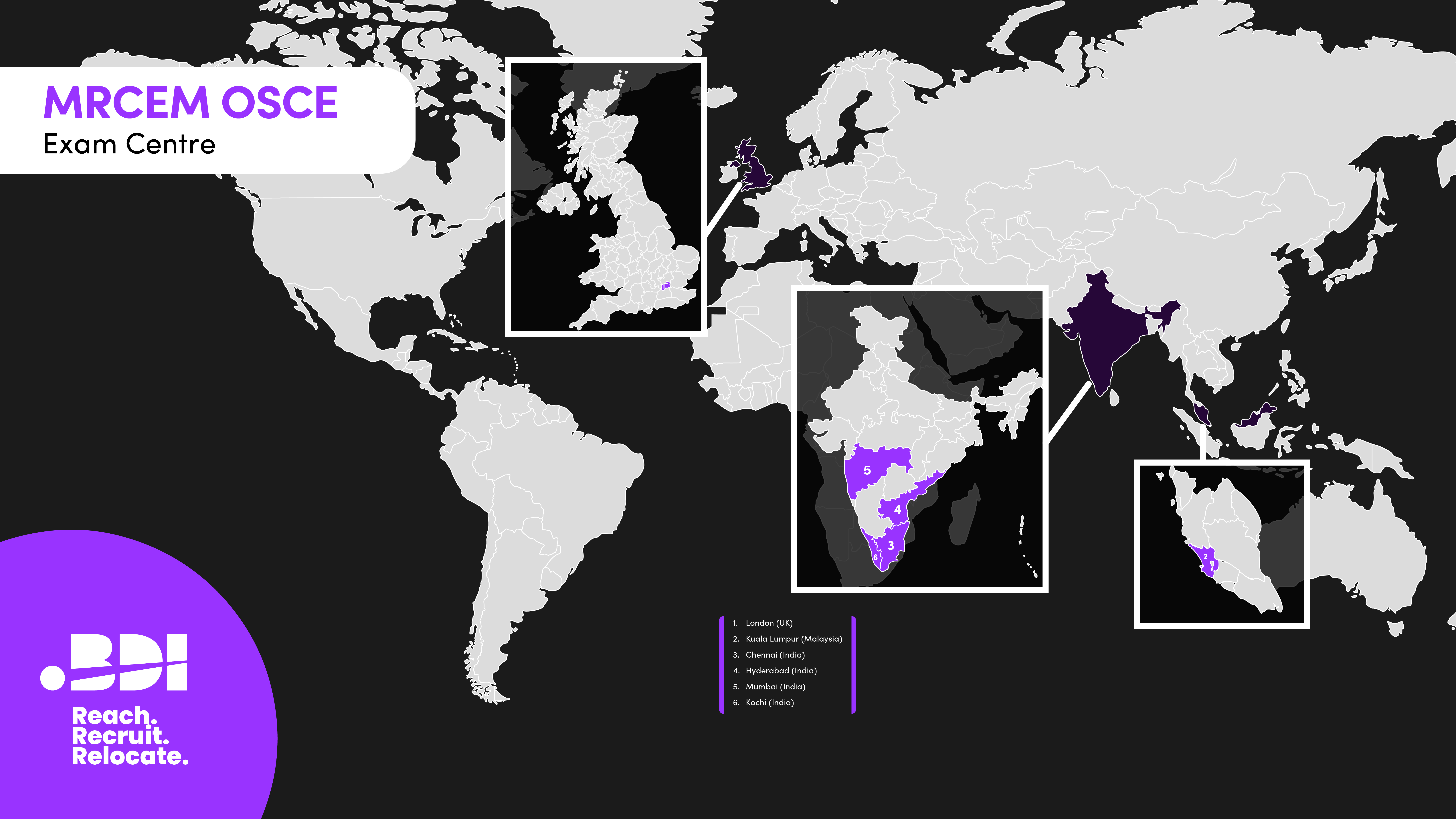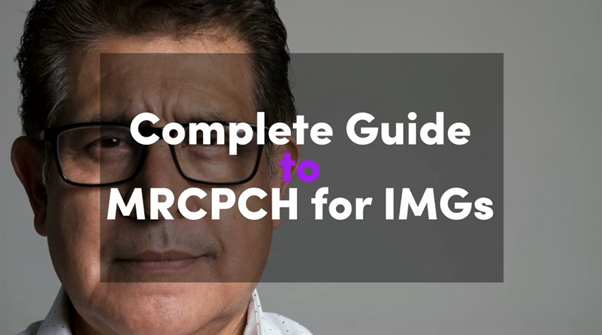MRCEM OSCE for IMGs
02 Feb, 20238 Minutes
The final exam you must take to complete the MRCEM is the MRCEM OSCE, which follows the MRCEM Primary and MRCEM Intermediate SBA. The MRCEM OSCE (objective structure clinical examination) is a practical exam that shows you are competent in an emergency department. The exam was previously named Intermediate SJP.
This exam is for international medical graduates who want to access more senior roles in the NHS – particularly in the emergency departments. Upon successful completion of the MRCEM OSCE, you will be on your way to that, as it provides a path toward GMC registration and even more specialty training.
Don’t get too ahead of yourself, though – you must pass the MRCEM OSCE first. It’s something many trainees find difficult! To help you achieve the pass you need for the MRCEM, this article will show you what to expect.
How Much is the MRCEM OSCE?
The MRCEM costs £450. However, taking the test in India will cost you £650; if you take it in Malaysia, it’s £750. There are a few locations available across India making it quite accessible for those wishing to apply:

Who Can Sit the MRCEM OSCE?
The criteria for sitting the MRCEM OSCE is a little more involved than it is for the first two MRCEM exams. First, you’ll need to have passed both the MRCEM Primary and the MRCEM Intermediate SBA. You’ll also need 24 months of medical experience, with six months of emergency medicine experience at an internship level.
Like previous MRCEM exams, the test will be in English, so you need to be at IELTS level 7.
To sit the MRCEM, you must book the exam online on the RCEM website. Check out the exam calendar to see the available dates – you’ll be able to book between 10 am and 5 pm on the designated booking date.
What Happens During the Exam?
The exam takes place in the UK, Malaysia, and India. These exams take place in person, although there is the option of doing it over a video call.
The exam itself involves different realistic clinical simulations, which you should respond to acting as you would in the hospital. It includes 16 8-minute stations, with one minute between each for reading the situation. You also receive two rest stations.
The station topics include:
- Complex Stable Patient
- Answer Questions
- Resus
- Injured Patient
- PEM
- Procedural Skills
- Complex Challenging Situations
- Supervise and Teach
These stations will test your clinical and communication skills, ensuring you’re ready for more intense training and can handle yourself in the emergency room. Each station will give you a scenario to prove that. For example, you’ll be expected to be able to handle a seriously injured child in an emergency situation without missing any steps.
How to Prepare for the MRCEM OSCE
To prepare for the MRCEM OSCE, familiarise yourself with the curriculum and exam structure. The examiners will score you on a zero to four – zero demonstrating little competence, while four is the best mark you can get. Two is borderline fail, and three is borderline pass. Also, you must pass one of the two resuscitation stations no matter what – even if you do well in other sections, you will fail the exam if you don’t pass one of those.
You can embark on online revision by checking out the RCEM assessment blueprint and recommended books. Doing so will help you grow your knowledge and know what to do in each station.
Of course, as it’s a practical exam, you’ll also need to practice your communication and demonstration skills. You can do this with your colleagues to gain feedback. Set up a roleplay of the exam, sticking to the entire structure (including the eight-minute mark) and see how you do. You could even record yourself to see where you could improve.
Didn’t Pass – What Now?
If you checked your results and didn’t pass, the first thing to do is not worry – it’s not unusual. The exam is challenging. In fact, more than 50% of candidates did not pass the 2016 exam. Plus, you can resit the exam up to six times.
There are some things you can do the ensure you perform better the next time around:
Improve Communication
Your weakness might not have been a lack of knowledge but how you communicate that knowledge. Remember – practice makes perfect, so roleplay common scenarios with your colleagues and ask for feedback.
Reduce Anxiety
Exam stress is natural but can seriously harm your performance. Try to relax on the day of the exam. For example, you could try some breathing exercises. You could also imagine that the exam is just like any other day in the emergency department.
Follow Instructions Carefully
Did you follow the instructions correctly? You may have gotten ahead of yourself. To pass the next time, consider that you need to listen and read slightly slower, absorbing all the information and responding appropriately.
Of course, only you will know the areas you need to improve, but the above are common things that can affect performance – as always, being prepared is critical as it will reduce anxiety and help you nail the stations.
If you have yet to pass and you’re worried, this advice from Dr Nouran Abdelkader – who is an IMG who now works in emergency medicine – may help:
“Write your goal in front of you and work hard. Enjoy every step of your journey. Feed your soul by doing whatever makes you feel content. Celebrate the success of the small steps. Be proud of yourself. Meditation and clearing your mind can be very helpful. Do it in any way that suits you.”
Passed! What Next?
Have you passed the MRCEM OSCE? Excellent! It’s not an easy test and passing shows you have sufficient knowledge of emergency medicine and can use it in clinical situations!
Passing the final exam awards you the MRCEM. With this, you can get your GMC registration and start working and furthering your experience by working in an NHS emergency department. After that, you might work towards a more senior role by becoming a fellow of the Royal College of Medicine, which will allow you to earn an even higher salary while taking on higher responsibilities.
Work in the NHS in an Emergency Department
Working in an emergency department in the NHS is a truly fulfilling experience and can make a worthwhile career for the right person. As an international medical graduate, you have the opportunity to do just that by pursuing the MRCEM. Remember – the first MRCEM exam doesn’t require specific emergency medicine experience.
In the next article, you can learn more about what it’s truly like to work in an emergency department in the UK.
If you are considering a career in emergency medicine in the NHS then let us know and we’ll be happy to give you help, guidance and keep you updated with the latest roles.



